Shikhdzhamalov explains the mystery move in Alexandria
Monday, March 6, 2023 - 06:00 By Vinay Siwach

ALEXANDRIA, Egypt (March 5) -- Iakub SHIKHDZHAMALOV (ROU) is looking for a name for his move that broke the internet.
At the Ibrahim Moustafa Ranking Series tournament in Alexandria, Egypt last week, Shikhdzhamalpv won his 74kg semifinal against Soner DEMIRTAS (TUR) after trailing 3-0. Nothing was working for him until he hit a "scoop", an unofficial name for the same in the wrestling lingo.
However, Shikhdzhamalov says that he does not know what to call the move which has been shared and viewed by millions on social media.
"There is no name for this move," Shikhdzhamalov said. "I am now thinking of a name for this move. I guess it will be my personal move."
It is not the first time Shikhdzhamalov has performed the move, a mix of cut-back and outside trip. Over the years, he has used it in various competitions and even during training but Shikhdzhamalov says one cannot prepare to execute it.
"I’ve been using this move for quite a long time," he said. "Nobody showed it to me. I managed to do it once at the training around 7-8 years ago. My coach noticed that I was good at doing it, and we tried to practice it together, but it was not even possible to do it during the training bout. It only works during the real match when you are concentrated."
Shikhdzhamalov explained the setup and execution of the same. He stressed that a wrestler should perform it at a very high speed to catch his opponent by surprise.
"When the opponent is pushing you and putting his hand underhook, that’s the right moment to do it," he said. "It’s very difficult to explain the technical part of it and also difficult to show how to do it, but it really works well. The most important is the high speed while making the move."
After the tournament, Shikhdzhamalov opened his social media and to his surprise, he received praise and feedback about the skill which he is proud of.
"Since I performed it at this tournament, there were so many comments and feedback about it," he said. It wasn’t just an occasional move. Yet, no one can do it. Even in my wrestling gym, the guys know that I can make this move, but no one can repeat it. If someone learns to do it, I would be really glad."
Training in Dagestan has helped Shikhdzhamalov improve his skills with the guidance of Gamid GAMIDOV and his personal coach Anvar MAGOMEDGADZHIEV.
After struggling at 79kg weight class last year where he failed to win a gold medal, Shikhdzhamalov has emerged as a contender for the gold at the European Championships.
"The 74kg weight class is preferable for my body," he said. "Last year I wrestled at 79kg because I had some health issues, I had to figure out what the problem was. The doctors advised me not to cut my weight at all. Last year my weight was about 77-78kg, although I wrestled at 79kg. This year I’ve solved all the problems and I went down to my weight class, since it’s more comfortable for me.
"I will wrestle for gold at the Europeans and the World Championships. I know most of the leaders in this weight class."
The European Championships in Zagreb, Croatia next month will be the first big test that Shikhdzhamalov will face before the World Championships. But after the gold medal in Alexandria, he hopes he can create more upsets in the weight class as the Olympics approach.
"Next tournament for me is the European championships," he said. "I don’t want to mention specific names that I would like to wrestle at 74kg, but for later tournaments, I am getting ready for the American, Iranian, Italian and all other leaders. I am getting ready to wrestle anybody and win. It's certainly interesting to wrestle against the top guys."


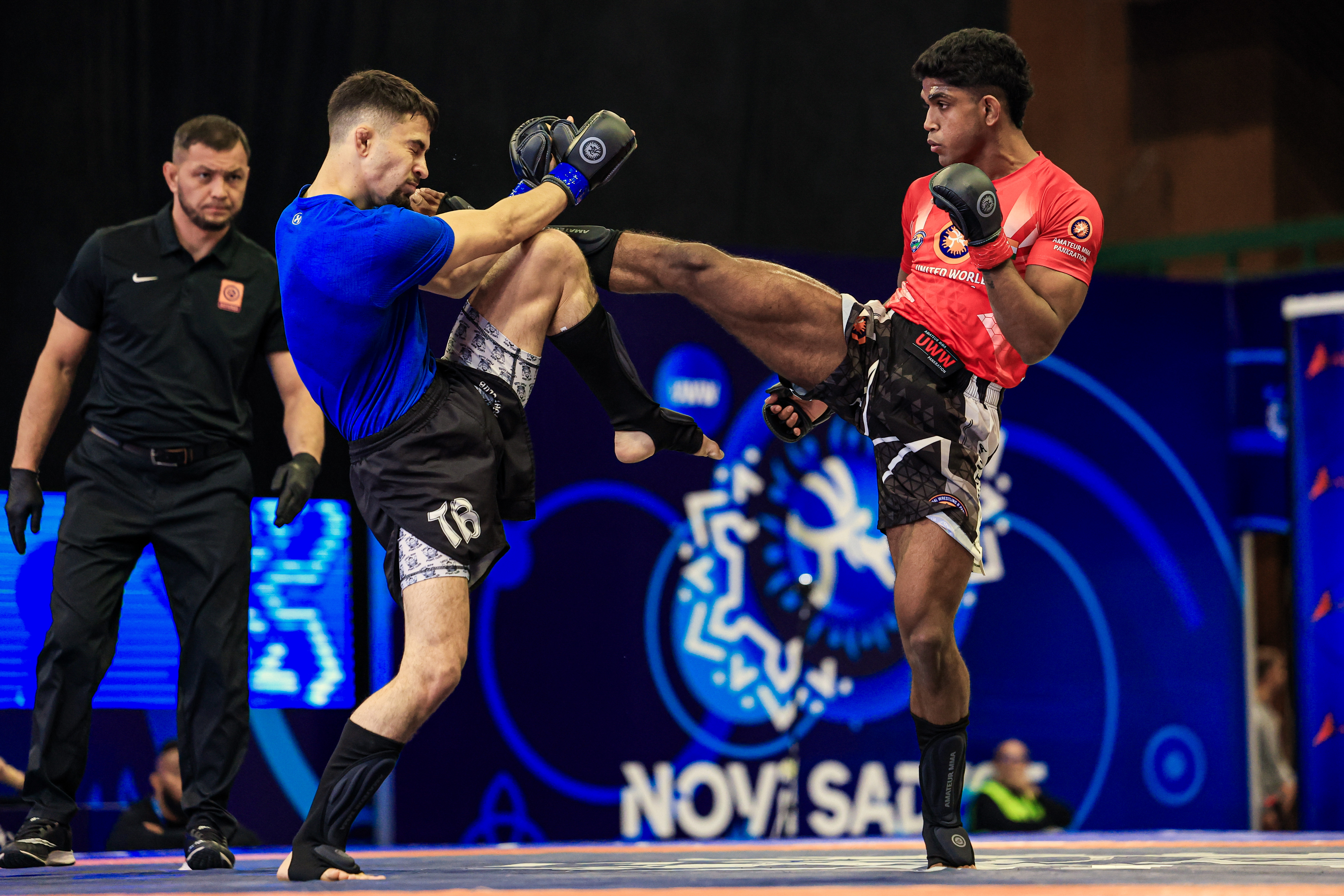 Scott HEATHCOTE (CAN), blue, and Aayush DIPU (IND) showing some early kicks during their match. (Photo: United World Wrestling / Amirreza Aliasgari)
Scott HEATHCOTE (CAN), blue, and Aayush DIPU (IND) showing some early kicks during their match. (Photo: United World Wrestling / Amirreza Aliasgari)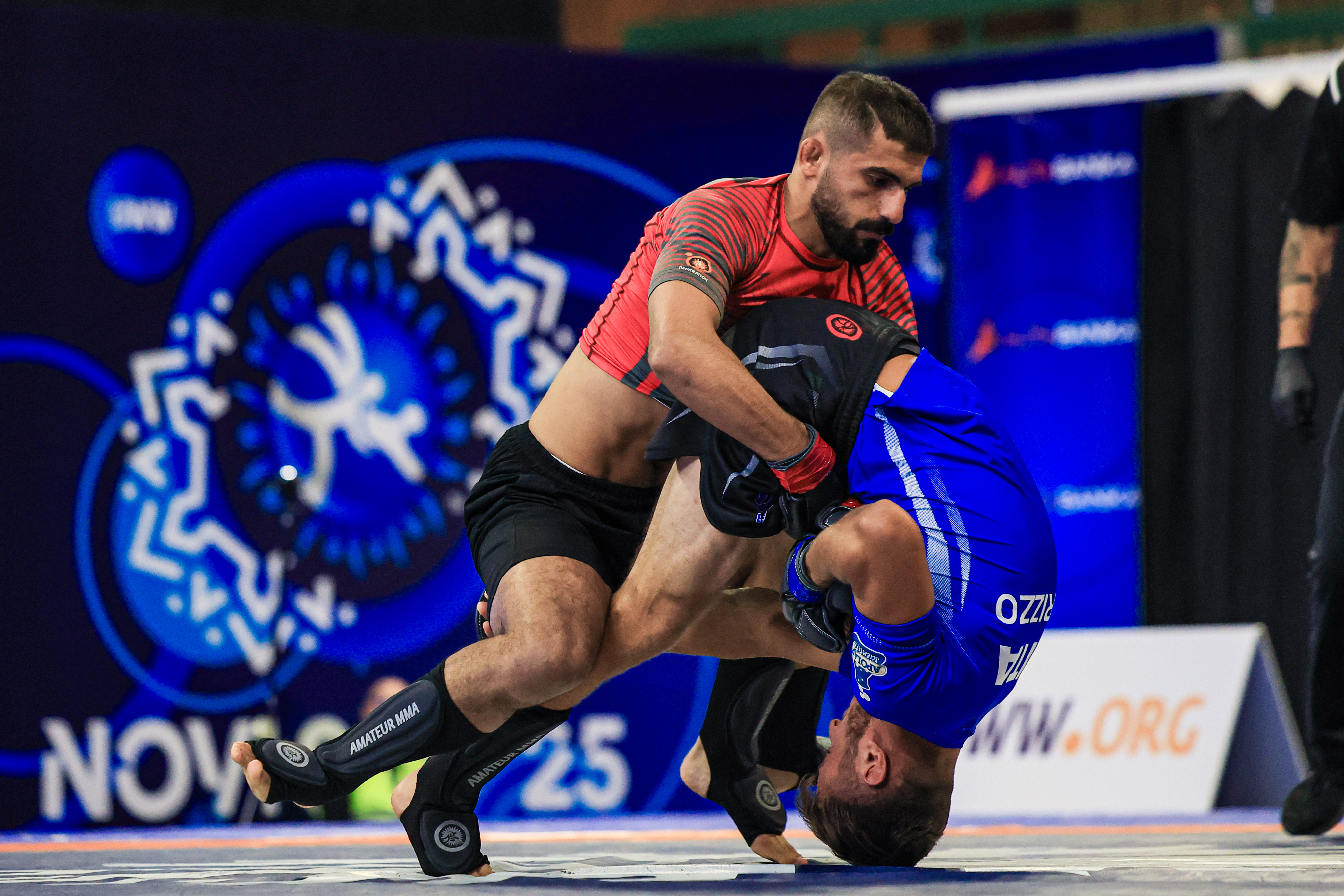 Front rolls for the win. (Photo: United World Wrestling / Amirreza Aliasgari)
Front rolls for the win. (Photo: United World Wrestling / Amirreza Aliasgari)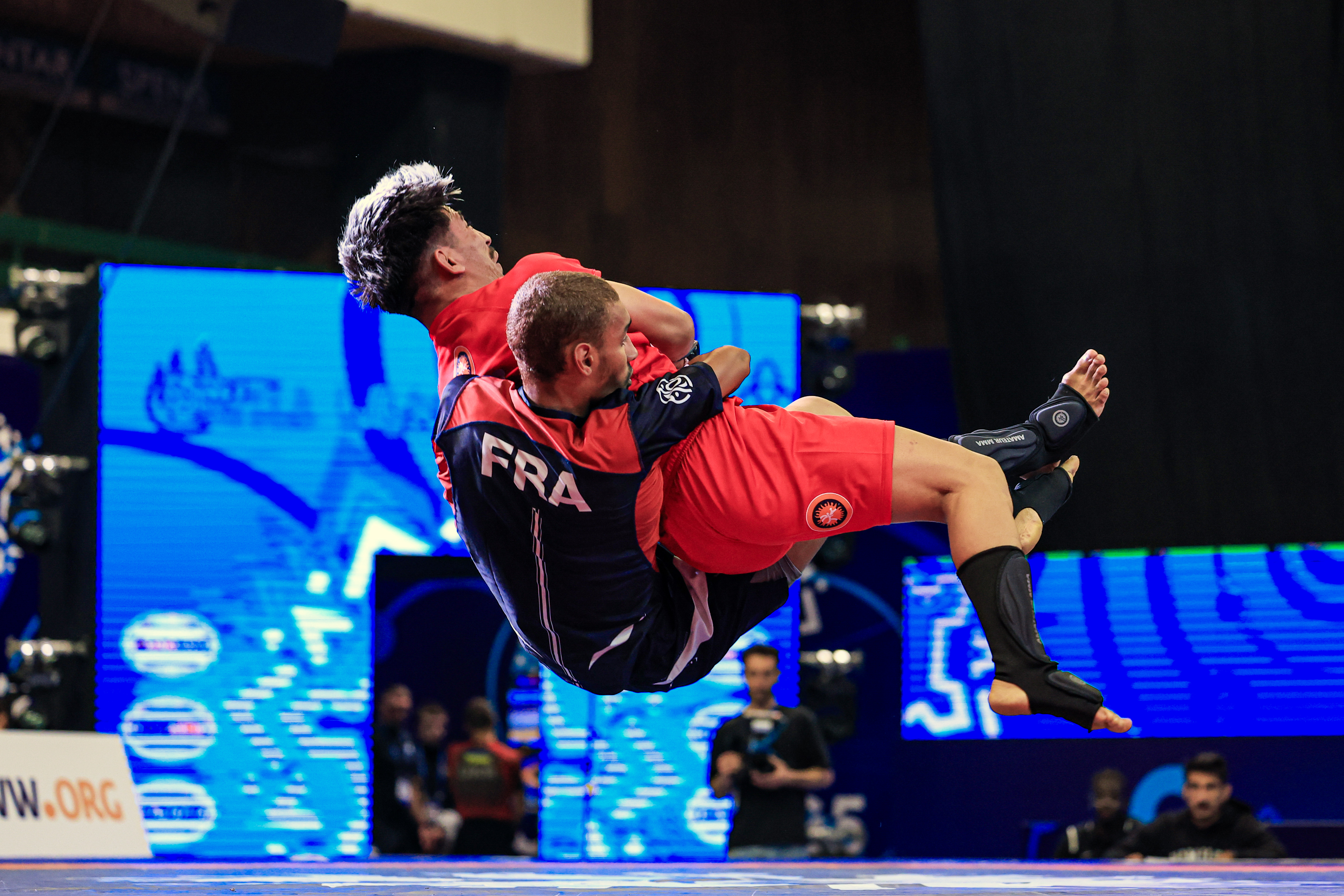 Up in the air. (Photo: United World Wrestling / Amirreza Aliasgari)
Up in the air. (Photo: United World Wrestling / Amirreza Aliasgari)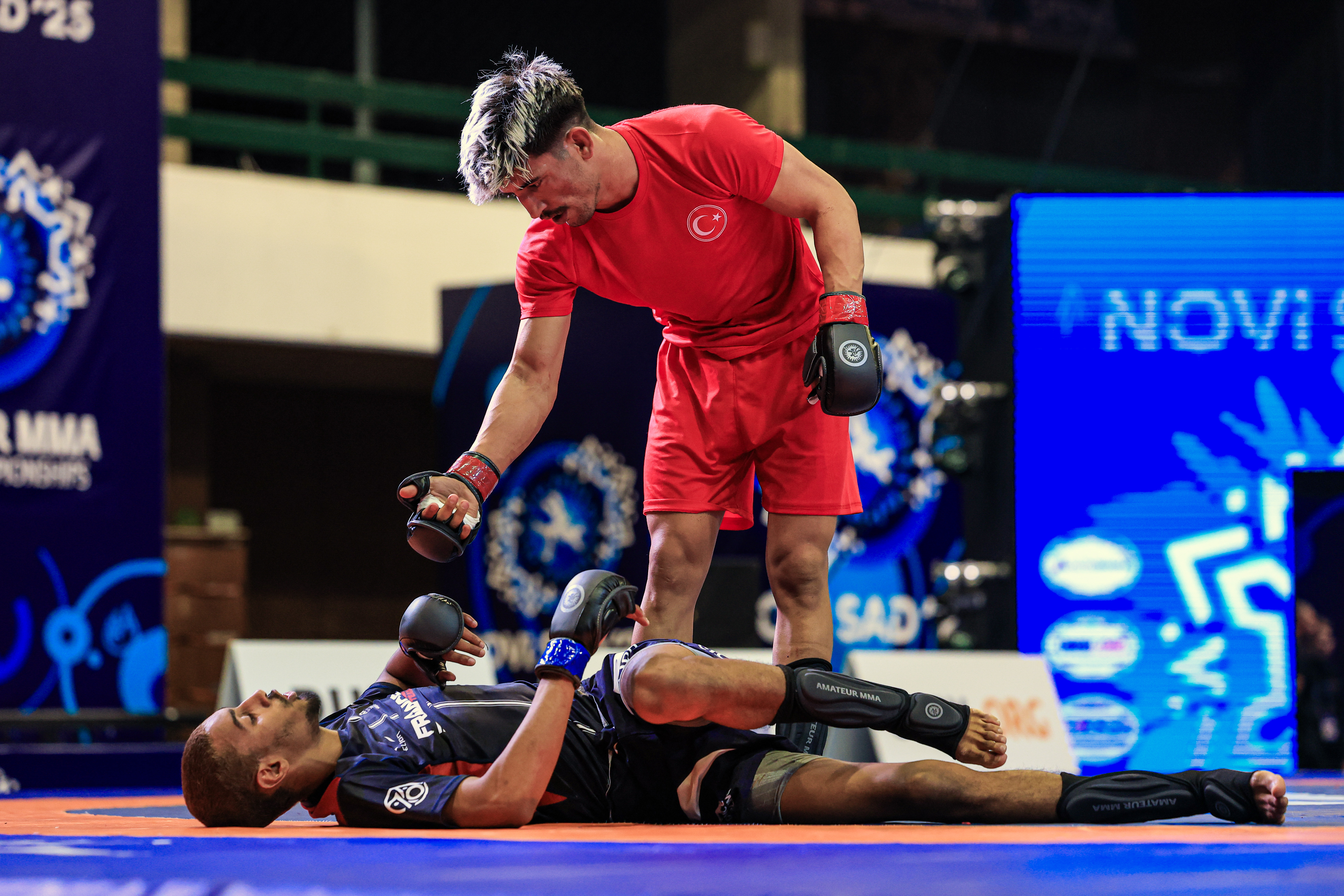 It's all about respect in the end. (Photo: United World Wrestling / Amirreza Aliasgari)
It's all about respect in the end. (Photo: United World Wrestling / Amirreza Aliasgari)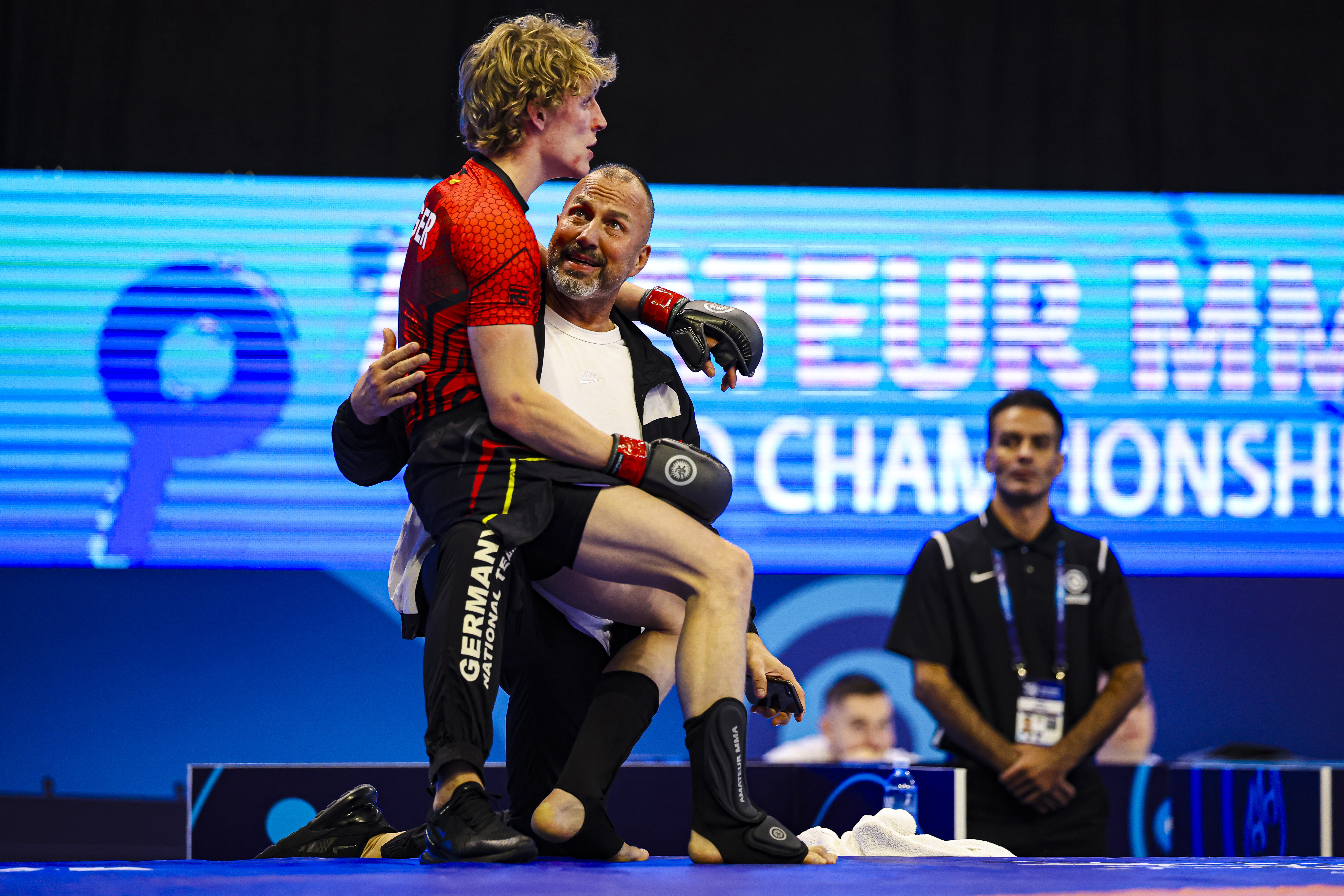 The coach improvised there. (Photo: United World Wrestling / Kadir Caliskan)
The coach improvised there. (Photo: United World Wrestling / Kadir Caliskan)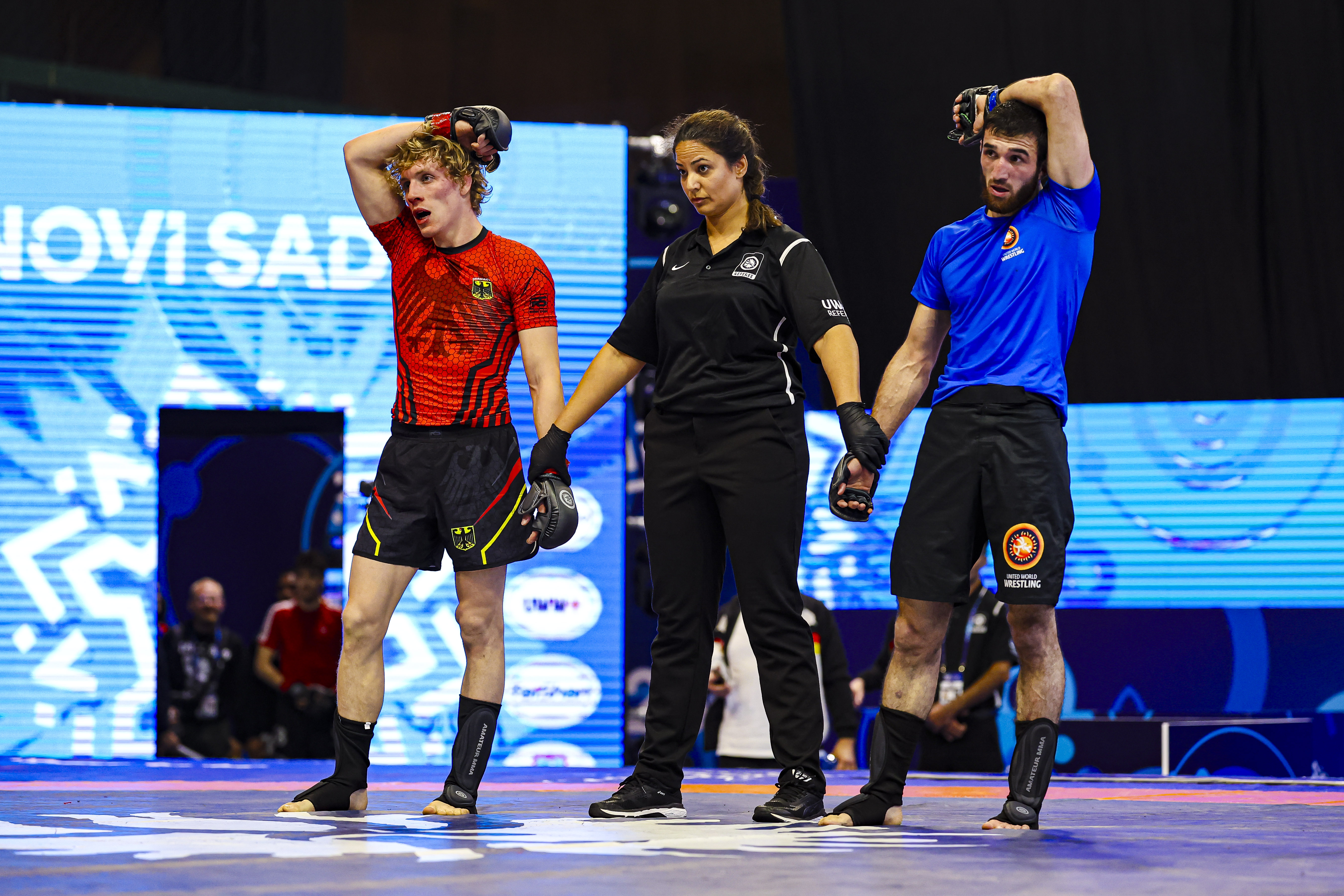 Win or lose, the reaction can't give it away. (Photo: United World Wrestling / Kadir Caliskan)
Win or lose, the reaction can't give it away. (Photo: United World Wrestling / Kadir Caliskan)
Share your thoughts.
Comments